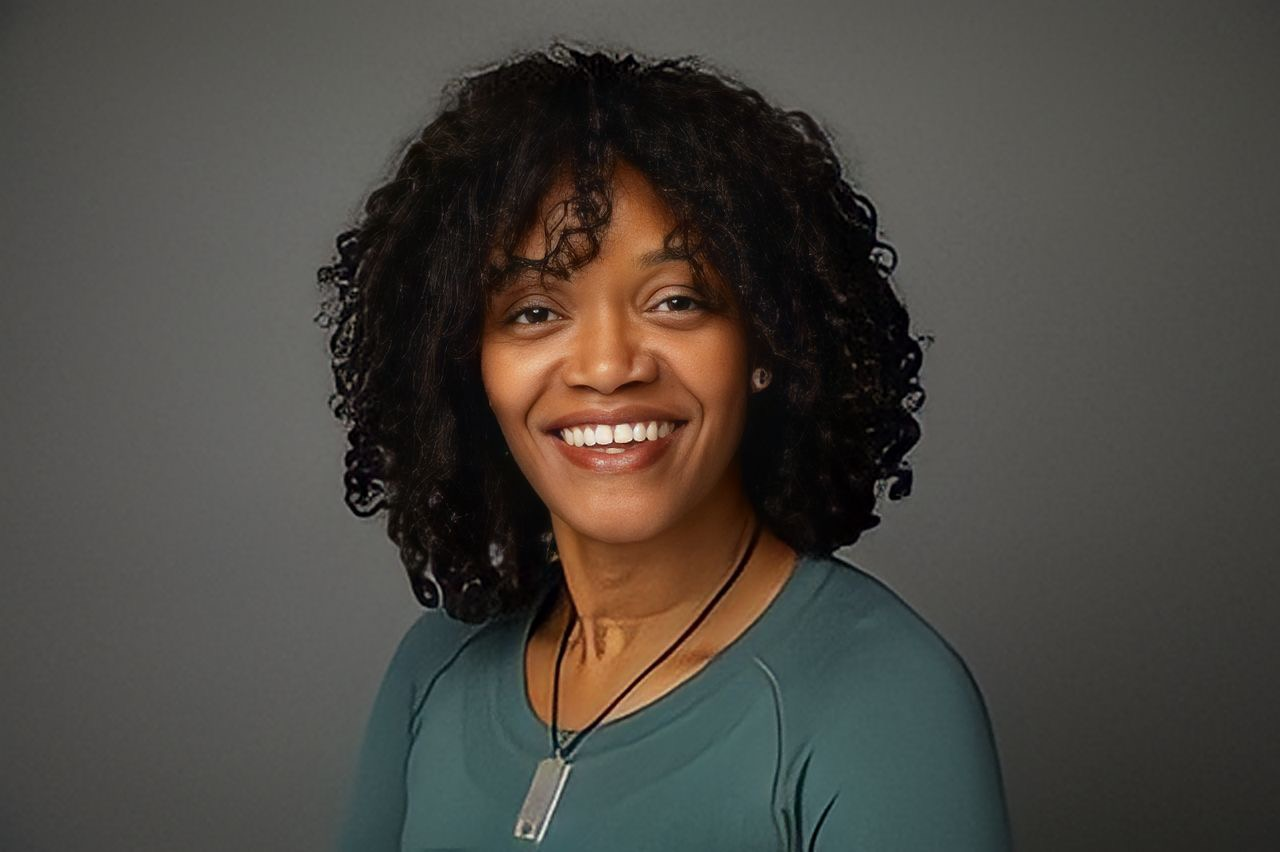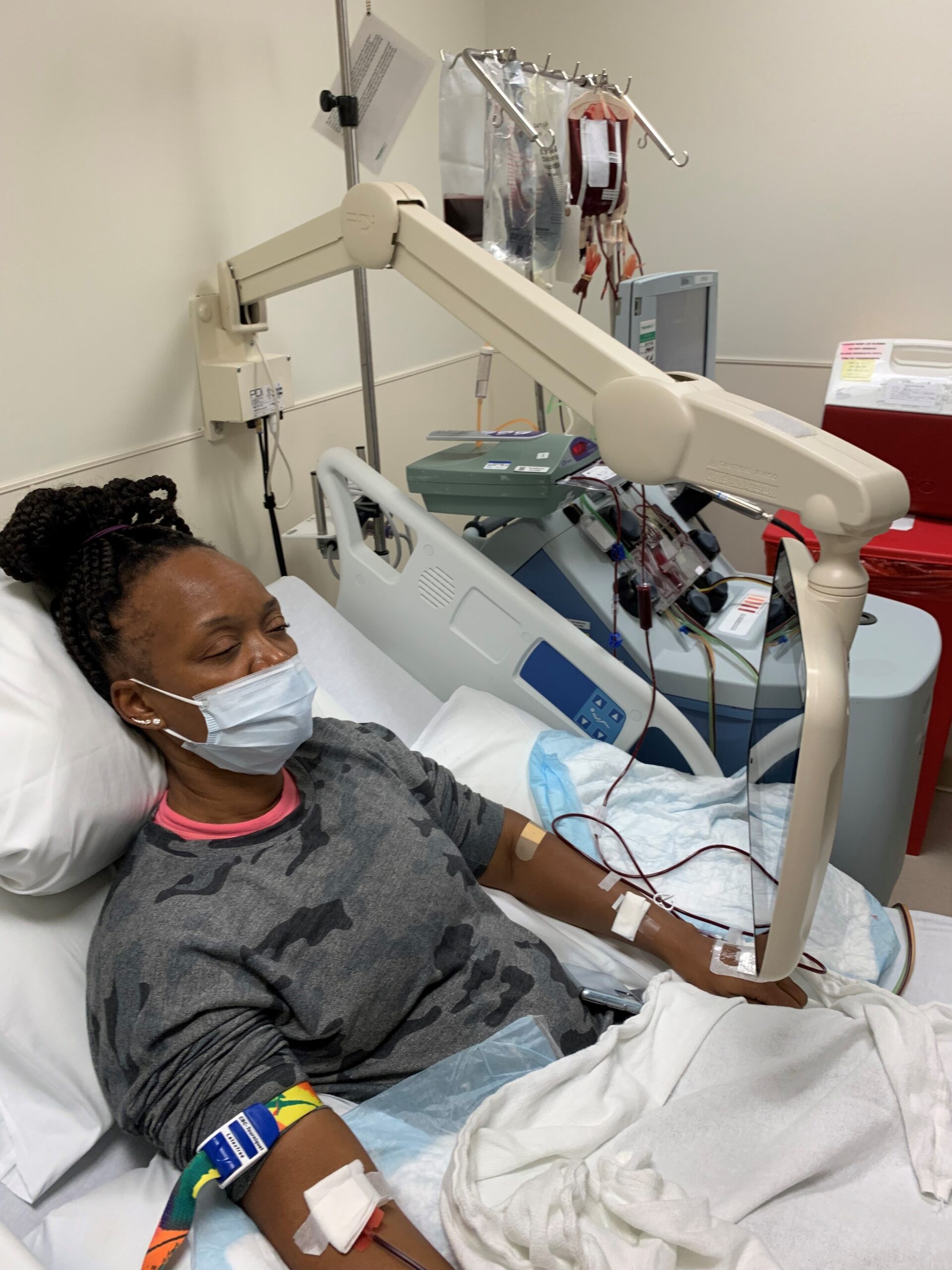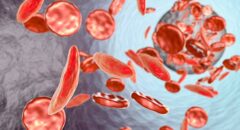
We often hear early diagnosis is the key to getting effective treatment and improving prognosis. But what happens when the timing of your diagnosis is out of your control? Newborn screening for both sickle cell disease and sickle cell trait is paramount for early diagnosis. Today, they are performed in all U.S. states. But once upon a time, this wasn’t a normal procedure, which has led to many sickle cell patients being diagnosed later in life.
This was the case for Dr. Marjorie Dejoie-Brewer, who learned she had sickle cell disease during her second year of medical school after the director of minority affairs mentioned that her symptoms resembled sickle cell.
“She said, ‘You know what? Your symptoms sound like sickle cell disease. We have one of the leading sickle cell pediatricians at CHOP (Children’s Hospital of Philadelphia).’ So, I attended the University of Pennsylvania Medical School – and Children’s Hospital of Philadelphia is basically on the same campus, though they’re considered two different hospitals. And because she knew pediatrician Dr. Kwaku Ohene-Frempong, she was able to give him a call and say you know ‘we have a student…these are her symptoms, it really sounds like this,’ and asked if he could do a diagnostic blood test. ,” Dr. Dejoie-Brewer recalls.
Within a couple of hours, she was finally able to put a name to something she’d been experiencing her whole life.
Although the diagnosis was late, Dr. Dejoie-Brewer describes it as right on time.
“I don’t know that finding out earlier would have changed the progression of my disease or the person that I am today. But I believe it happened when it was supposed to happen,” she adds.
The diagnosis was a shock, but Dr. Dejoie-Brewer credits the hospital staff for delivering the news with “compassion and assurance.”
“…A lot of diagnoses are given to you with an air of condolence. Usually, it’s like ‘Oh my God, I hate to tell you this but…,’” she notes.
For Dr. Dejoie-Brewer, the diagnosis was a way to finally put a finger on what was going on with her and her brother, who also has sickle cell disease and received a diagnosis around the same time.
RELATED: Sickle Cell Warrior on Breaking the Cycle: “Get In The Ring With Us”

“It wasn’t that I wasn’t going into the hospital. I had been admitted to the hospital multiple times. I would present and describe what I was experiencing, and nobody thought in all those times that I went to check for sickle cell. So, to me there was a sense of relief that came along with the diagnosis,” Dr. Dejoie-Brewer shares. “I could put a name to the illness that was causing my suffering. I wanted to go back to every single hospital and say ‘see, I wasn’t making it up. I told you something was going on.’ It is very challenging when you feel like you are not being heard and seen by doctors while experiencing the worst pain of your life…But everyone wasn’t thinking sickle cell disease at the time.”
After dealing with the shock of the diagnosis and the fear from her family, Dr. Dejoie-Brewer embarked on what she calls a








